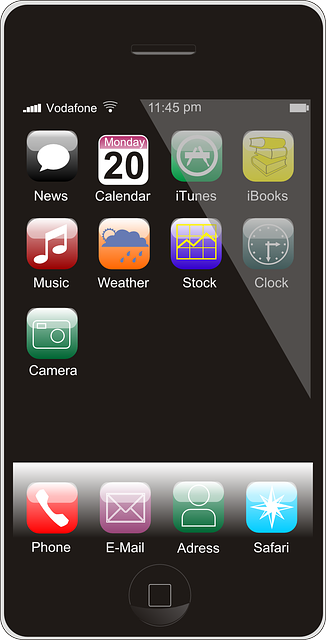Did you know over 30,000 phones get hacked every day? If a hacker gets into your phone, they could steal money, your identity, and private stuff. Securing your phone might seem hard, but some easy steps can protect you.
Understanding the Threats
Hackers have different ways to target phones. It helps to understand some common tricks they use.
Phishing Attacks
Phishing is when someone tries to trick you into giving up your information. They might send a text message (smishing) or email that looks real. For example, you might get a text saying your bank account is locked and asking you to click a link. Don’t do it! Those links often lead to fake websites that steal usernames and passwords. A common trick is to make it seem urgent so you will act without thinking.
Malware and Viruses
Malware is bad software that can mess up your phone. You can get malware by downloading unsafe apps or clicking fishy links. Android phones can be more at risk than iPhones. iPhones have strong built-in protection, but no phone is 100% safe. Always be careful about what you download.
Unsecured Wi-Fi Networks
Public Wi-Fi is convenient, but it’s not always safe. Hackers can use fake Wi-Fi networks to steal your info. This is called a “man-in-the-middle” attack. Always avoid doing important things like banking on public Wi-Fi. A hacker could be watching.
Strengthening Your Phone’s Security
You can strengthen your phone’s defenses with simple settings and good habits. Let’s get started.
Strong Passwords and Biometrics
Use strong passwords that are hard to guess. Don’t use the same password for everything. Face ID and Touch ID are great ways to lock your phone. They use your face or fingerprint. Biometrics make it much harder for someone to break into your phone.
Software Updates
Always update your phone’s software. Updates fix security problems. They patch holes that hackers can use to get in. Turn on automatic updates so you don’t forget. This is very important.
Two-Factor Authentication (2FA)
Two-factor authentication (2FA) adds an extra layer of security. With 2FA, you need something else besides your password to log in. This could be a code sent to your phone. Use an authenticator app like Google Authenticator. 2FA makes it way harder for hackers to access accounts.
App Security Best Practices
Apps can be a source of security problems. Follow these tips to stay safe.
Downloading Apps From Official App Stores
Only download apps from the official app stores. These stores check apps for safety. Sideloading apps (installing them from other sources) can be risky. Always check who made the app before you download it. Look at the developer’s name and website.
Reviewing App Permissions
Apps often ask for permissions to access things on your phone. Some apps ask for too much. Check app permissions in your phone’s settings. Does a flashlight app really need access to your contacts? Probably not. Turn off any permissions that don’t make sense.
Regularly Auditing and Deleting Unused Apps
Delete apps you don’t use anymore. Old apps can be a security risk. They might have security problems that hackers know about. Fewer apps means fewer ways for hackers to get in. Regularly go through your apps and delete the ones you no longer need.
Protecting Your Data and Privacy
Your phone holds a lot of personal information. Here’s how to protect it.
Enabling Find My Device
Turn on “Find My Device” in your phone’s settings. This lets you find, lock, or wipe your phone if it gets lost or stolen. It works for both iPhones and Android phones. This can be a lifesaver if something bad happens.
Using a VPN on Public Wi-Fi
A VPN (Virtual Private Network) encrypts your internet traffic. This makes it harder for hackers to steal your data on public Wi-Fi. Use a trusted VPN provider. Some good ones are NordVPN and ExpressVPN.
Being Careful What You Share Online
Be careful about what you share on social media. Don’t post personal info like your address or birthday. Hackers can use this information to steal your identity. Think before you post.
What to Do If You Suspect Your Phone is Hacked
What do you do if your phone has been compromised? Act fast.
Changing Passwords Immediately
Change your passwords right away. Start with your email, banking, and social media accounts. Pick strong, unique passwords. Don’t use the same one for everything.
Contacting Your Bank and Credit Card Companies
Tell your bank and credit card companies if you think you’ve been hacked. They can watch out for bad activity. They can also cancel your cards and give you new ones. It’s better to be safe than sorry.
Factory Resetting Your Phone (As a Last Resort)
If all else fails, factory reset your phone. This will wipe everything off of it. Make sure to back up your important data first. A factory reset should be a last resort, but it can remove malware.
Conclusion
Securing your phone is super important in our world. To recap, use strong passwords, keep your software updated, and be careful with apps. Protect your data, use a VPN on public Wi-Fi, and be aware of what you share online. Take these steps now to protect yourself from phone hackers. Don’t wait, start protecting your digital life today!

AdHang.com is the No.1 agency for digital marketing in Nigeria and the first Internet public enlightenment agency in Africa. AdHang has everything needed to achieve your digital marketing objectives and goals. From strategic digital marketing, a tactical approach to employing advanced digital marketing tools and technologies, using seasoned marketers with decades of marketing communications experience.




Comments